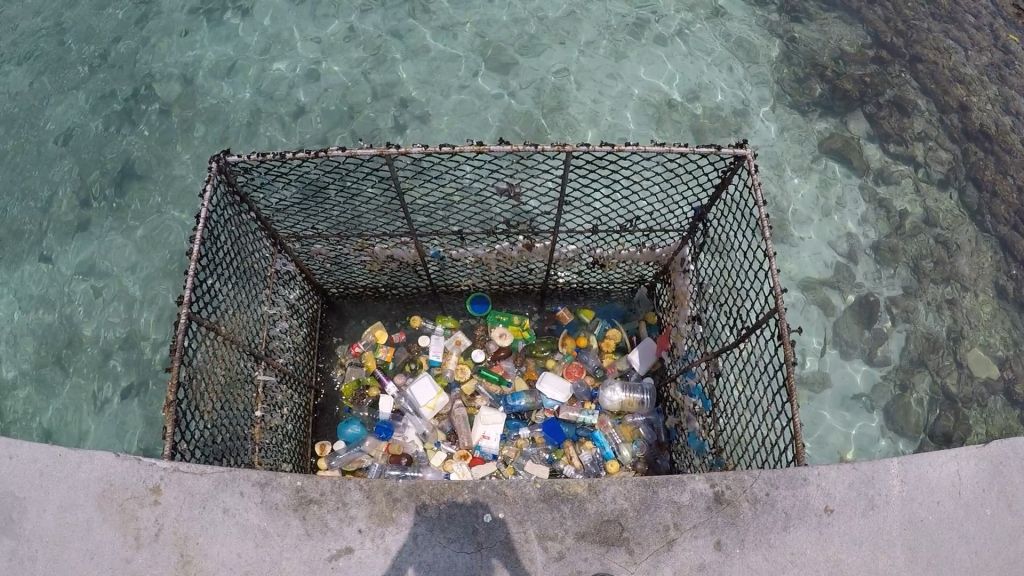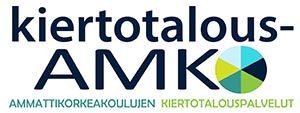Circular economy - but are we forgetting the economy?

Circular economy. “Oh once again those buzz words”, you might think. But what does it actually mean? Circular economy is a new economic model that is expected and wished to replace the existing linear, take-make-waste model. The reason for looking into new solutions is obvious – the world is running out of resources, waste keeps on piling up and simultaneously population and consumption is heavily increasing. Thus, we need plan B.
Strangely enough, the economic aspect often gets lost in general discussion. It seems that for some circular economy means only recycling. Surely, that is part of the picture but circular economy is way more than that. Ellen MacArthur Foundation is the thought leader in circular economy and presents the three basic principles of circular economy, which are the following:
- Design out waste and pollution
- Keep products and materials in use
- Regenerate natural systems
Design out waste and pollution
The first principle promotes re-designing products so that waste and pollution can be minimized. This is the area which has been trendy during the last years and “the war against plastics” is a great example how general public has become aware of the issue. Plastics have been trending in Twitter, grocery stores have launched plastic-free aisles, consumers have started to require plastic-free packaging and retailers are setting targets that affect the supply chain from brand owners to packaging material providers. From the economy aspect this puts pressure on organizations to rethink their packaging design and focus on research and development for innovating better solutions. It also provides an opportunity for businesses that can provide disruptive innovations or utilize totally new business models.
Keep products and materials in use
The second principle encourages to utilize materials and products in their highest utility rate. In other words, sharing is preferred over re-use, re-use preferred over recycling and recycling is preferred over waste-to-energy and so on. As said in the beginning, recycling is maybe the most well-known part of the circular economy concept but different strategies of circular economy provide opportunities for new business models. Manufacturing company can transform into a service provider by offering licensed machines and maintenance or offering a remanufacturing service. By doing that the company gets ready for the future, decreases pressure on the environment and strategically ensures their income flow in the changing , more sustainability aware competitive environment.
There is also business potential in offering reusable solutions for applications that traditionally have been single-used products. RePack is a great example of a company that has brought into market a re-usable packaging for e-commerce deliveries. Their solution is designed to last at least 20 delivery cycles whereas traditionally e-commerce packaging is used for customer delivery and in best cases also for return delivery. RePack has succeeded to challenge their competitors from environmental aspect but also to create a solution that motivates consumers to buy again thanks to the reward system they have invented.
Circular economy can also provide competitive advantage. When a company can offer a recyclable solution or remarkably simplify recycling for consumers it can enjoy competitive advantage. However, this can only last as long as it is a unique solution. When easily recyclable solutions become mainstream the competitive advantage created by that feature decreases. In addition, the economic value must be kept on mind when designing recyclable solutions. Even though recycling is technically and system-wise doable but if the recycled material does not have an existing end-market or high enough economic value as a raw material the model is not sustainable in the long term.
One of the oldest strategies of circular economy is sharing. Sharing economy has its roots far in the history but it suits perfectly into today´s lifestyle. While population is growing and urbanization increases, the living space is simultaneously decreasing and becoming more expensive. This motivates consumers to rethink what are the goods to own and what are the goods to share. Certain rarely used but space-taking goods, such as lawn mover and suitcase, are potential products for sharing. Sharing economy can of course exist without monetary payment but it also provides an opportunity for digital service platforms such as EasyRent in Hong Kong for suitcase rentals.
Regenerate natural systems
The third principle of circular economy promotes regenerating natural systems and focuses on biological cycles. This can mean for example composting food waste but covers also the new business opoortunities with biogas and biofuel production. When waste streams can be transformed into higher value materials it becomes economically feasible to make investments into new technology. Without high-enough economic incentive the environmental investments often get a red light. Is the return-on-investment calculation method favorable for long-term, wide-spread impact, common-good sustainability investment is then a totally different question.
For decades it has been said that the most important task of a company is to create profit for its owners. The way of thinking has started to change and it is recognized that organizations also have a role in the society and in the lives of their employees. There are also business models such as social entrepreneurship that have a clear focus on common good on top of the economic profitability. However, the importance of money cannot be denied. Circular economy is a great example of renewing the old way of thinking into more sustainable direction. Now the question is, how do we accelerate the transformation, change circular economy from a buzz word in action that is adopted by all – not only the sustainability-minded.
More information:
https://www.ellenmacarthurfoundation.org/ciris cular-economy/concept
https://www.originalrepack.com/
Senior lecturer Noora Markkanen
Tampere University of Applied Sciences
